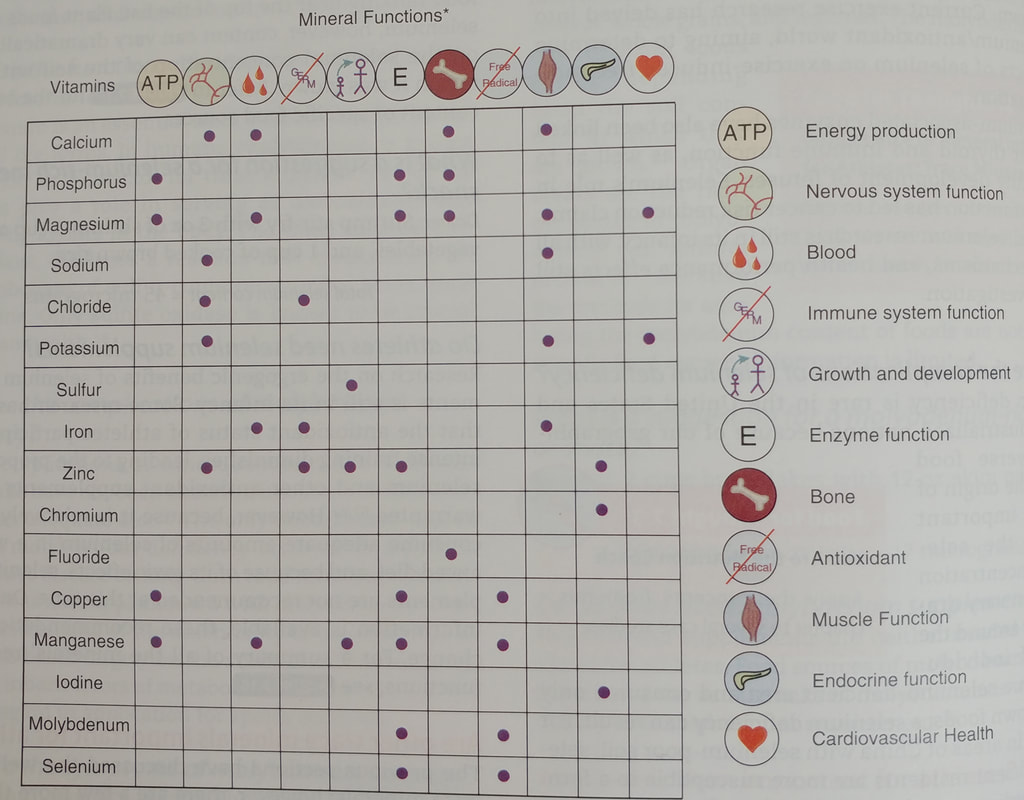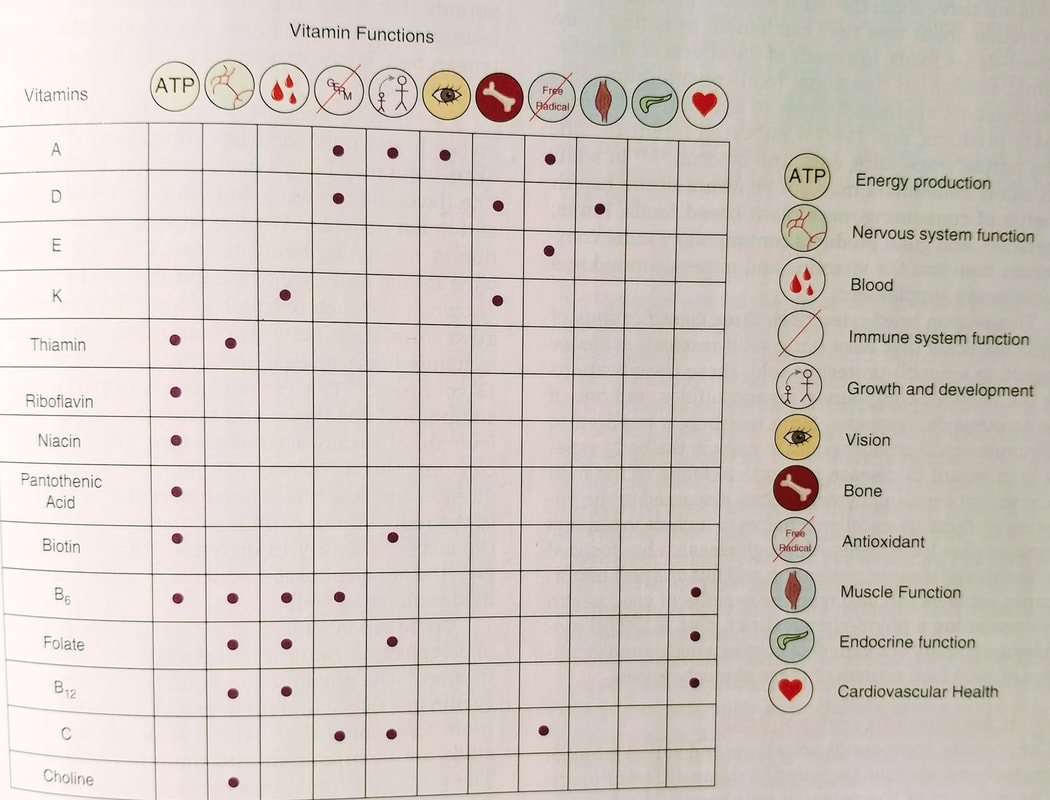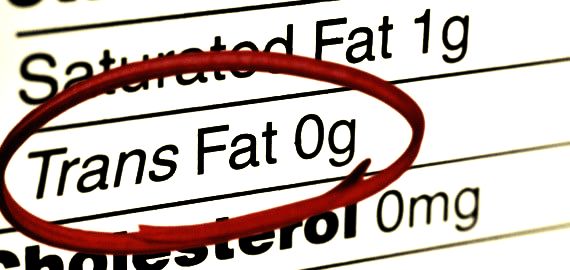|
Below is that same great function chart but this time for all the minerals. As you might know, there are major and trace minerals. A mineral is called a major mineral when the body requires amounts greater than 100 milligrams (0.004 oz) per day. A trace mineral is required by the body less than 100 milligrams per day.
If you are interested to know more about minerals and how they could potentially help you improve your overall health or where to find these minerals in nature, contact us today. Minerals are unique nutrients in several respects. Unlike carbs, fats, proteins, and vitamins, minerals are not organic molecules. They are inorganic elements or atoms. Minerals contain no calories and, although essential, are needed by the body in very small amounts. After ingestion, the structure of minerals is not altered, unlike the reaction of macronutrients, which undergo changes in structure during digestion. Because of the minerals structure, they are unaffected by cooking techniques, digestive processes and/or exposure to enzymes. Major Minerals: Calcium, Chloride, Magnesium, Potassium, Phosphorus, Sodium & Sulfur. Trace Minerals: Iron, Zinc, Chromium, Fluoride, Copper, Manganese, Iodine, Molybdenum & Selenium.
0 Comments
A good advice is to incorporate lots of antioxidant-containing foods into the daily diet to ensure adequate intake of a vast variety of antioxidants and other nutrients. The chart below lists all the vitamins and their respective functions, including those with antioxidant properties. If you need help contact us for a consultation. If you would like to know more about where to find which vitamin, please contact us via email, call or the online form below.
Stay healthy, eat real foods. Thanks to Giovanni, DannyTheCoach is now being promoted in Zug, Switzerland. We're officially going international. Thanks so much Gio and keep working out, stay strong and eat healthy, real foods!
A great article by Dr. Mercola (link below) shows the links between fats and health issues. A few important facts are listed below and a link to the entire article is listed as well. First of all we all need fats. As the article states, for decades, saturated fats have been demonized as the cause of heart disease. As the article further points out, the food industry, responding to such health concerns replaced saturated fats with trans fats, and a whole new market of low-fat (but high in sugars) foods was born.
Here a few short excerpts:
Research shows that trans fat clogs arteries, not saturated fat. Dr. Fred Kummerow, author of Cholesterol Is Not the Culprit, has researched fats and heart disease for eight decades, and he was the first researcher to identify which fats actually cause clogged arteries. Link to the Entire Article Below the video by Fred Kummerow.
If you want to protect your health, particularly your heart, brain, and gut, you should try to avoid as many processed foods (including most restaurant food) as much as possible, and start cooking at home, using fresh, whole, unadulterated ingredients.
|
Author
DannyTheCoach Archives
January 2023
Categories
All
|






 RSS Feed
RSS Feed